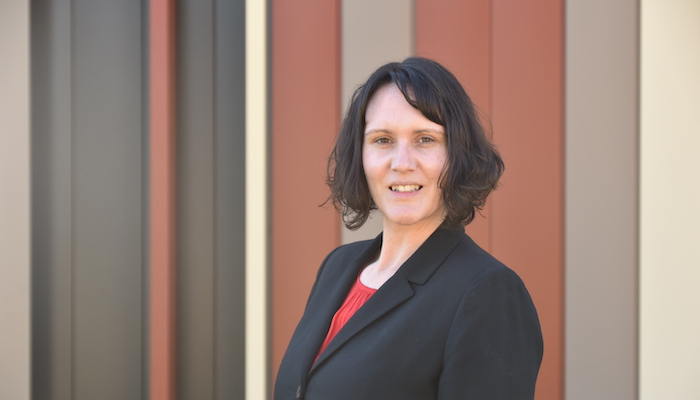Organisers of this year's International Women's Day have adopted the theme of DigitALL: Innovation and technology for gender equality. The theme recognises the potential for innovation, technology, and digital education to close the gender gap, raise awareness among women and girls about their rights and lift their community engagement.
To mark the occasion on March 8, seven leading Macquarie University scholars from a wide group of disciplines – including geography, computing, sociology, law, business, engineering and health – talk about the innovative ways they use digital technology in their research and the opportunities for women in their areas of expertise.
ENGINEERING
Associate Professor Noushin Nasiri, Head of the NanoTech Laboratory, School of Engineering
I'm a materials engineer, and my research explores the creation of nano-scale devices or nano-sensors for a wide range of applications, including wearable devices for health and preventative medicine purposes.
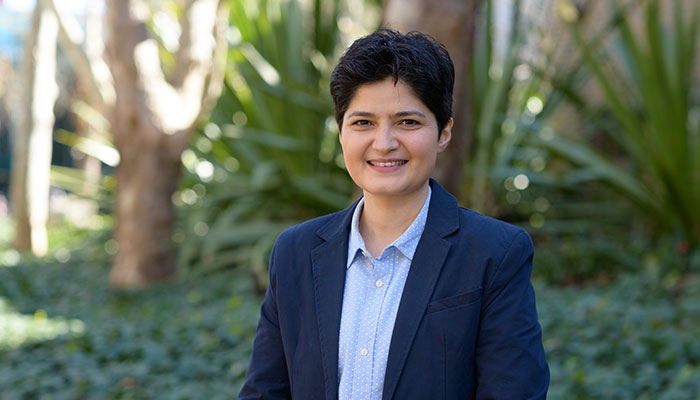
Data-gap: Associate Professor Noushin Nasiri, pictured, says gender-based data gaps need to be addressed so that devices can be designed by women for women.
Having women in this field is critical because most devices that we use are not designed by women or for women . For example, the sensors on my smartwatch can detect heart rates, body temperature and how much you sweat – but they don't work properly on me, because there's a gap between the sensor and my skin, as these devices were designed for an average male body.
Another example: seatbelts and airbags in many cars are designed and tested on male bodies – and this means women have a far higher chance of injury requiring hospitalisation in car accidents.
Having women in this field is critical because most devices that we use are not designed by women or for women.
The failure of technology to cater for women is because so much research is based on data about males, so we have a gender-based data gap.
There's a huge market for tech that caters for women, and so many opportunities to improve what we do now. These include using sensors to collect data about women's bodies, overcoming that gender data gap – and then designing and testing devices with and for women.
LAW
Professor Niloufer Selvadurai, Director of Research and Innovation, Macquarie Law School
When I started in this field, Australia had very few technology law academics, and I've been privileged to see this critical field grow and expand.
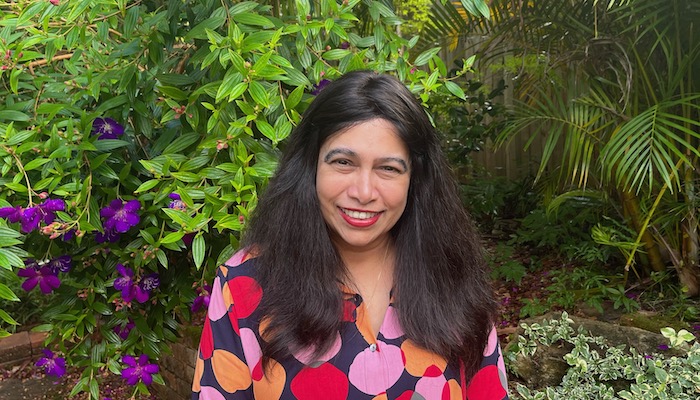
Opportunities: Professor Niloufer Selvadura, pictured, says there are many doors open right now in the field of law for women to make their mark in technology regulation.
My research and teaching explores how technological change can undermine the effectiveness of laws, especially in the fields of digital finance, smart contracts and cyber security, and how legal frameworks can be reimagined to strengthen trust. I often collaborate with researchers in finance, computing and engineering.
Some of my current projects include fighting cybercrime using AI, a fintech regulation project and research on blockchain-based smart contracts.
Social media can give marginalised people a voice, call out instances of inequity and bias and advance gender equality discourse – the 'me too' movement is an example. For me personally, technology has not been the medium so much as the message. My work looks at how we can regulate technology to calibrate competing objectives – for example, I co-authored Australia's first legal academic analysis of AI-assisted decision-making.
The many gaps in our present technological regulations mean there are brilliant opportunities in the field of law for women to make really innovative and original contributions.
SOCIOLOGY
Professor Bronwyn Carlson, Head of the Department of Indigenous Studies
I am a sociologist who has always focused on Indigenous sociology, especially as it relates to digital technology. My extensive track record speaking to online violence against Indigenous women led to my appointment as Deputy Director (Indigenous) for the ARC Centre of Excellence for the Elimination of Violence Against Women in Australia and the Indo-Pacific.
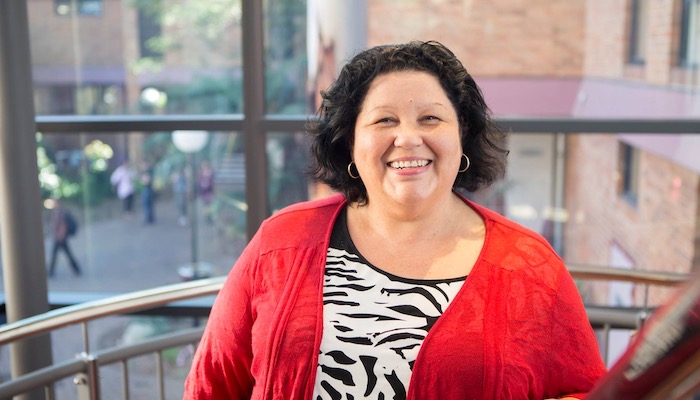
Double-edged sword: Professor Bronwyn Carlson says while digital tech provides a platform for Indigenous women and girls to be heard, they can be also become targets of online violence.
My research explores the digital lives of Indigenous peoples, including how digital technologies can be used to harm or discriminate against us. My book – Indigenous Digital Life – considers love, joy, hate and identity and community, and my current projects include looking at online violence toward Indigenous and LGBTQIA+ people on social media locally and internationally.
As a society we have a long way to go to ensure people are safe online.
Digital technology can be a double-edged sword: while providing avenues for some women and girls to engage in debates and conversations they may have otherwise been left out of, women and LGBTQAI+ people are targeted across digital platforms sometimes in very violent ways.
AI used to detect hate speech and other forms of violence is generally modelled on a white middle-class experience. As a society we have a long way to go to ensure people are safe online.
GEOGRAPHY
Dr Miriam Williams, Senior Lecturer in Geography and Planning
I'm an urban cultural geographer whose work focuses on community food provisioning initiatives and common spaces in cities, and how urban life could be made more caring and just. Last year I convened a newly-formed national coalition of researchers who worked together remotely to develop a consensus statement on the collection of data about household food security.
Digital toolkit: Dr Miriam Williams, pictured, maintains collaborations with researchers across the globe to advance her work in the field of food security.
Technology plays an important role in both my research toolkit, and the topics I investigate. For example, our recent 'Vertical Villages' project which included exploring ways people in high-rise apartments connect with each other using technology. My digitally-enabled research ranges from online survey tools, to personal interviews done over Zoom or Teams, and the use of QGIS to create maps that can be really powerful storytelling tools.
Technology ... lets me maintain critical international scholarly relationships that would otherwise not be possible without extensive travel.
Using video tools, I also connect and collaborate with other researchers across the world and even join international expert advisory panels. Technology-enabled connections let me maintain critical international scholarly relationships that would otherwise not be possible without extensive travel.
HEALTH
Professor Farah Magrabi, Professor of Biomedical and Health Informatics, AIHI
I lead the Artificial Intelligence (AI) Systems Safety research stream at the Australian Institute of Health Innovation, where we try to understand how best to use AI to enhance healthcare, and how to assist organisations to implement these systems safely and effectively.
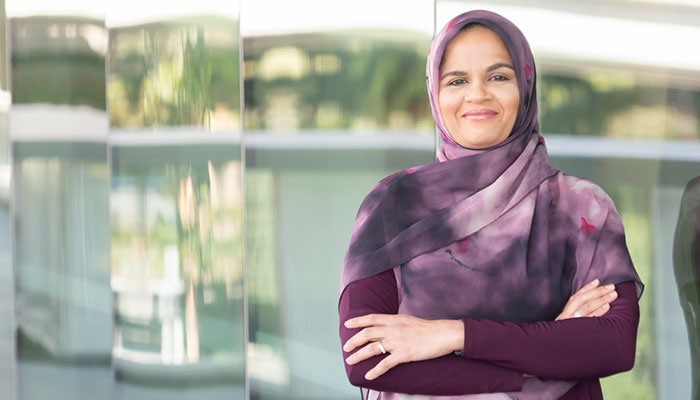
Improved access: Professor Farah Magrabi, pictured, says digital technology and AI give women better access to health information and services enabling them to actively participate in their care.
A lot of our work involves tracking safety risks. As safety research involves going through a lot of big datasets to uncover instances where things went wrong, we often use AI to do this, so we can quickly identify and track these events.
Even simple things like making health information accessible in multiple languages can greatly assist women, especially those in marginalised communities.
Digital technology also has huge potential to improve access, putting information right into the hands of consumers, including women making decisions about their family's health. In health workplaces, it can level the playing field, giving women far more flexibility to work from anywhere and manage all of their other responsibilities.
BUSINESS
Associate Professor Sarah Bankins, Department of Management, Macquarie Business School
I'm a management academic who studies the effects of using AI in workplaces, exploring things like what people do at work and how they experience their work.
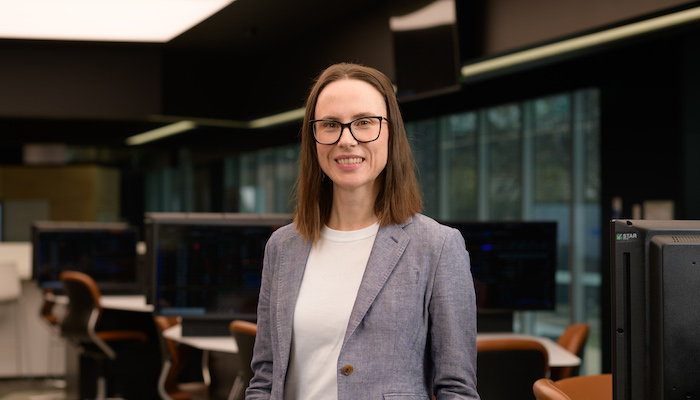
AI at work: Associate Professor Sarah Bankins, pictured, looks into how people react to new technologies in workplaces and says responsible innovation practices are needed to maximise female empowerment.
More broadly, I also look at how people understand, explain, experience and react to AI including where these technologies make decisions that impact them. I work with colleagues in fields from computer science and philosophy to organisational psychology and economics.
Research shows us that technology has the power to make the lives of women and girls better.
Research shows us that technology has the power to make the lives of women and girls better. This includes increasing access to health information and support services on demand, supporting girls' education and improving women's safety (including better predicting and ideally preventing domestic violence). But technology can also cause harm, from generating gender-biased recruitment outcomes to gender-specific risks relating to data privacy.
Maximising technology's benefits for women and girls involves adopting responsible innovation practices that meaningfully engage a diverse range of stakeholders to achieve outcomes like female empowerment, rather than entrenching digital divides.
COMPUTING
Professor Jian Yang, Director of Research, School of Computing and Deputy Director, Applied Artificial Intelligence Research Centre.
I'm a data scientist who has worked at CSIRO, the Australian Defence Force Academy and Tilburg University in the Netherlands before joining Macquarie.
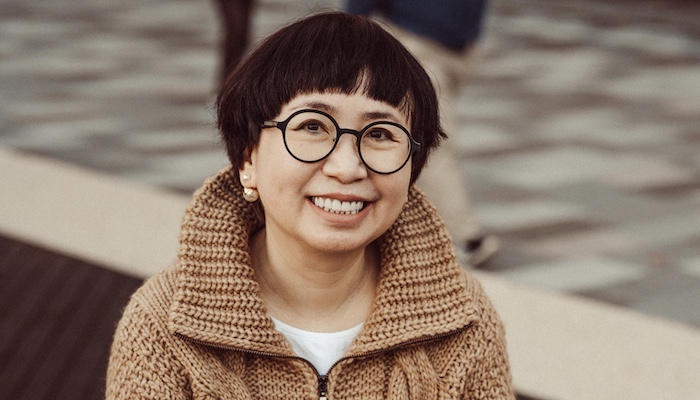
Sharing: Professor Jian Yang, pictured, says if more positive female role models were promoted in computing it would help build a more diverse workforce.
My research encompasses information sharing and data fusion, and applying machine learning techniques to tackle challenges across such domains as health, business, finance and social networks. For instance analysing brain-image data from MRI scans or EEG activity to detect abnormal patterns that could indicate particular diseases; scrutinising financial transaction data to detect fraud; or evaluating social media data (from Twitter for example) to detect misinformation.
I believe we need to address unconscious biases that may discourage women and girls from pursuing careers in technology and computing.
Digital platforms and tools from social media and preprint servers to virtual conferencing make it easier for researchers to share their work and connect with other experts, making research findings more visible and boosting interdisciplinary work, and can positively impact women's careers by creating more opportunities for collaboration.
I believe we need to address unconscious biases that may discourage women and girls from pursuing careers in technology and computing, through promoting positive role models and addressing gender stereotypes to help foster more inclusive and diverse workforces.

